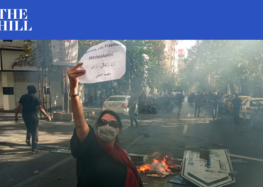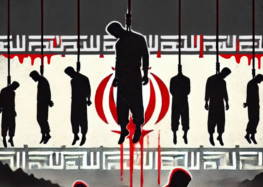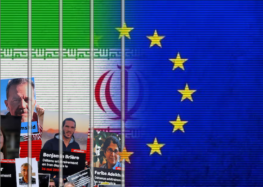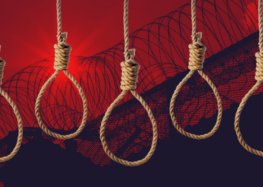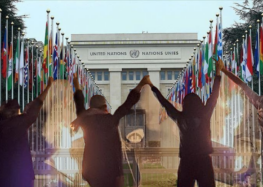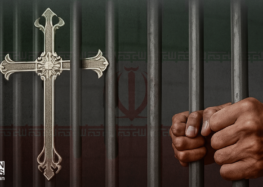Mohammad Mostafaee: Judge Moghiseh Has Violated Many Suspects’ Rights
 In a widely published recent letter to Sadegh Larijani, Head of Iranian Judiciary, Mohammad Mostafaee, lawyer to a group of civil and political activists, has objected to “numerous violations by the Head of Branch 28 of Revolutionary Courts,” demanding closer oversight of court officers related to this branch. In an interview with the International Campaign for Human Rights in Iran, addressing the inappropriate conduct of the Judge and other authorities of Branch 28, he explained his reasons for writing the open letter. “Several times, when I went to Revolutionary Courts and Branch 28, I was not treated appropriately as a lawyer, unfortunately. I noticed instances which were against the law and even when I submitted requests or raised the issues with the branch judge, the judge would not accept them and I was forced to go visit the Courts Supervisor; at any rate, I couldn’t find any answers [to my objections].”
In a widely published recent letter to Sadegh Larijani, Head of Iranian Judiciary, Mohammad Mostafaee, lawyer to a group of civil and political activists, has objected to “numerous violations by the Head of Branch 28 of Revolutionary Courts,” demanding closer oversight of court officers related to this branch. In an interview with the International Campaign for Human Rights in Iran, addressing the inappropriate conduct of the Judge and other authorities of Branch 28, he explained his reasons for writing the open letter. “Several times, when I went to Revolutionary Courts and Branch 28, I was not treated appropriately as a lawyer, unfortunately. I noticed instances which were against the law and even when I submitted requests or raised the issues with the branch judge, the judge would not accept them and I was forced to go visit the Courts Supervisor; at any rate, I couldn’t find any answers [to my objections].”
Mostafaee has referred to instances of “temporary detention” rulings in this branch as clear examples of violation of the law: “One of the most important considerations is that individuals must not be illegally arrested. This has been spelled out by the law. If a suspect is arrested, it is because there are reasons and signs that the individual has committed a crime, and the judicial authority issues a temporary detention order [to investigate the matter]. A temporary detention order has limits and boundaries and it cannot last forever. The legislator has determined the framework and has stated that the suspect must not spend more time in detention that the minimum punishment stipulated in the law. If the minimum punishment for a crime is three months, the suspect should not be detained more than three months, and if an arrest warrant has been issued [in the meantime], it should be revoked and turned into another appropriate order.”
Regarding the prevalent procedure of verbal summons of individuals to court, calling it “illegal” he has said: “Summons must be made in writing and branch office manager or secretary are not authorized to serve summons verbally. Though it is possible to summon an individual to the judicial offices verbally, but the legislator has stipulated that judicial branch offices must serve the summons in writing.”
Another instance Mostafaee has emphasized in his letter is his suggestion for a committee of judges who serve in the Judges Court and judicial inspectors for overseeing the performance of this unit of the Judiciary.
Regarding specific violations by Branch 28 of the Revolutionary Courts, Mostafaee mentions the cases of two of his clients, Sassan Aghaee and Mohammad Fadaei: “One of the cases in which this specific violation has taken place, is the case of Sassan Aghaee. Though he is currently free on a $100,000 bail, he spent four months in prison. If he were to be found guilty, the maximum sentence for his crime would have been three months and the judicial authorities would not have been able to detain him longer than three months. The other instance is the case of Mohammad Fadaei. He has been in detention for the past five months on charges of propagation against the regime.”
Further describing the violations of the Head of Branch 28 of Tehran Revolutionary Courts in his letter to the Head of the Judiciary, the lawyer writes: “Regrettably, the Judge of Branch 28 of the Tehran Revolutionary Courts, Mr. Moghiseh, has acted against the law in numerous cases in some of which I have represented the defense. Fundamental and mandatory laws including the Iranian Procedures for Criminal Prosecution and The Legitimate Freedoms and the Protection of Citizenship Rights have been ignored and the rights of many suspects whose files have been sent to this branch have been violated. For example, it is necessary to pay special supervision and attention to the matters of illegal arrests of suspects where the law has stipulated that detention of suspects cannot be more than the minimum punishment reflected in the law; refusal to end the temporary detention orders upon expiry of the detention reasons; refusal to issue orders enabling the lawyers to meet with their clients in prison and to sign power of attorney documents; refusing to inform the defense about the exact time of the trial and, more importantly, refusal to serve judicial documents and copies of indictments, depriving the suspects from their right to defend themselves fairly.”
Mostafaeel has also sent copies of his letter to the Iranian Parliament’s Article 90 Commission, Judges Court, Committee to Protect The Legitimate
Freedoms and the Protection of Citizenship Rights, Iranian Bar Association of Tehran, and The Judiciary’s Human Rights Commission.

